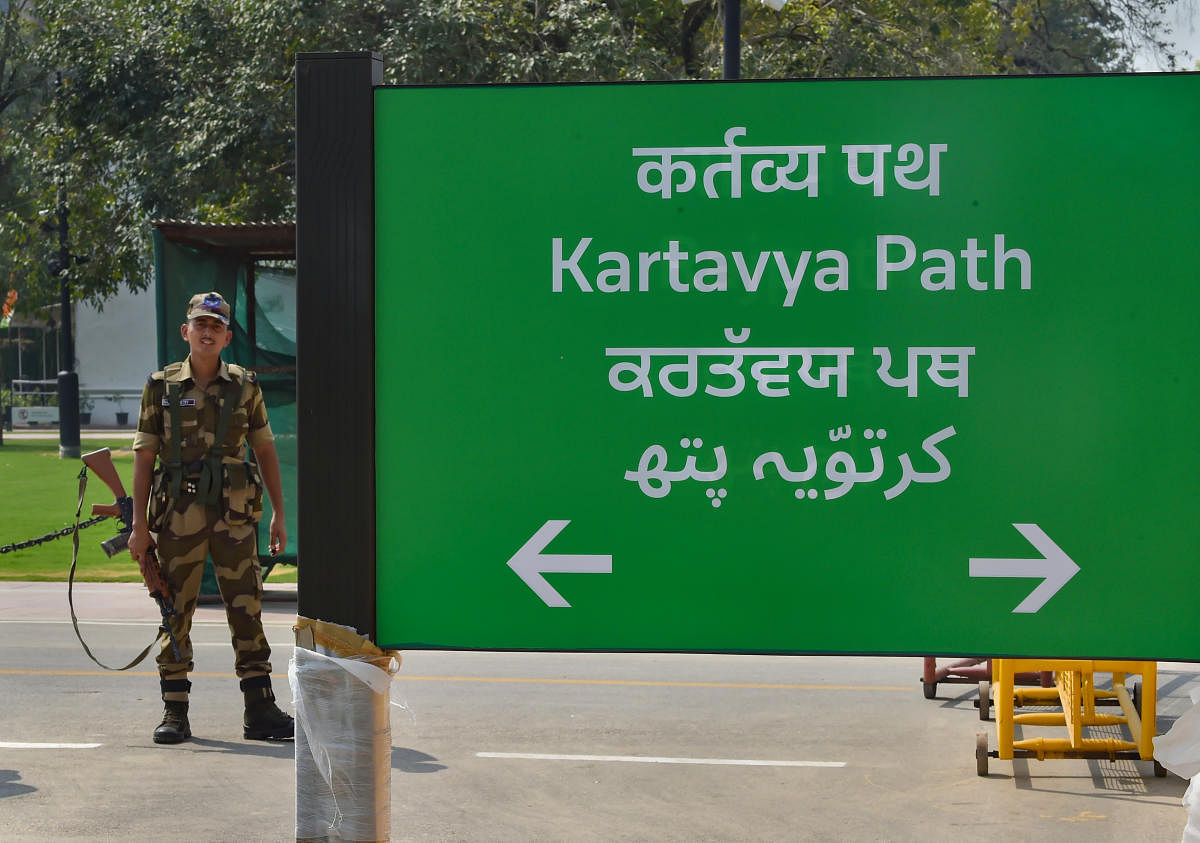
Names are signs, and signifiers and reminders of things and ideas, and sometimes embody history. They are used not just to identify people and places but to make statements and evoke meanings. They are also often used to produce political narratives. The dropping of a name is as significant as giving a new one, and the flurry of name changes seen in the country in recent years are often marked more by low politics than by any higher sentiment or a right sense of history.
The renaming of Raj Path as Kartavya Path is an act of politics taken to an absurd level, and the justification for it defies common sense. Prime Minister Narendra Modi said on Thursday that Raj Path symbolised India’s slavery to the British and the new name marked freedom from it. Renaming a road in 2022 did not end colonial rule and bring freedom. Colonial rule ended in 1947 through a relentless freedom struggle led by the likes of Gandhi, Nehru, Patel and Subhas Chandra Bose. That struggle was substance. This renaming is mere symbolism.
Kingsway, the colonial boulevard from India Gate to Raisina Hill, was renamed Raj Path soon after Independence, along with Queensway, which became Jan Path. How much more Indian can Raj Path be, and how is Kartavya Path any more so? Are Raj Bhavans to be renamed, too, now? If the idea behind Kartavya Path is to convey the message that the government considers its duties and responsibilities important, then that should be shown more in policies and actions than in words and names. The government’s duty is to keep the country united and to maintain peace and order, improve the economy, help the poor, ensure that the weaker sections are protected, that democracy is strengthened, that the Constitution prevails. None of these is served by the name change, which only creates an illusion and serves as a distraction. In fact, many decisions of the government, including demonetisation and the sudden national lockdown in 2020, have raised questions about the government’s sense of its duties and responsibilities. If the message sought to be conveyed is that citizens’ duties are more important than their rights, it is a wrong one. The fundamental rights of citizens are at the heart of the Constitution and form its core. The duties were later inserted into it by an earlier authoritarian government during the Emergency. It is an authoritarian mindset that denigrates citizens’ rights and elevates duties.
The installation of a statue of Bose at India Gate is a part of the government’s new and false narrative about the country’s freedom struggle. Modi said Bose was forgotten and ignored after Independence. That is wrong. Rather, it is the BJP now trying to appropriate Bose, as it did Sardar Patel, because it, and its larger ideological Parivar, has no heroes of the freedom struggle of its own. It is an attempt to invent a false history and a past for itself.